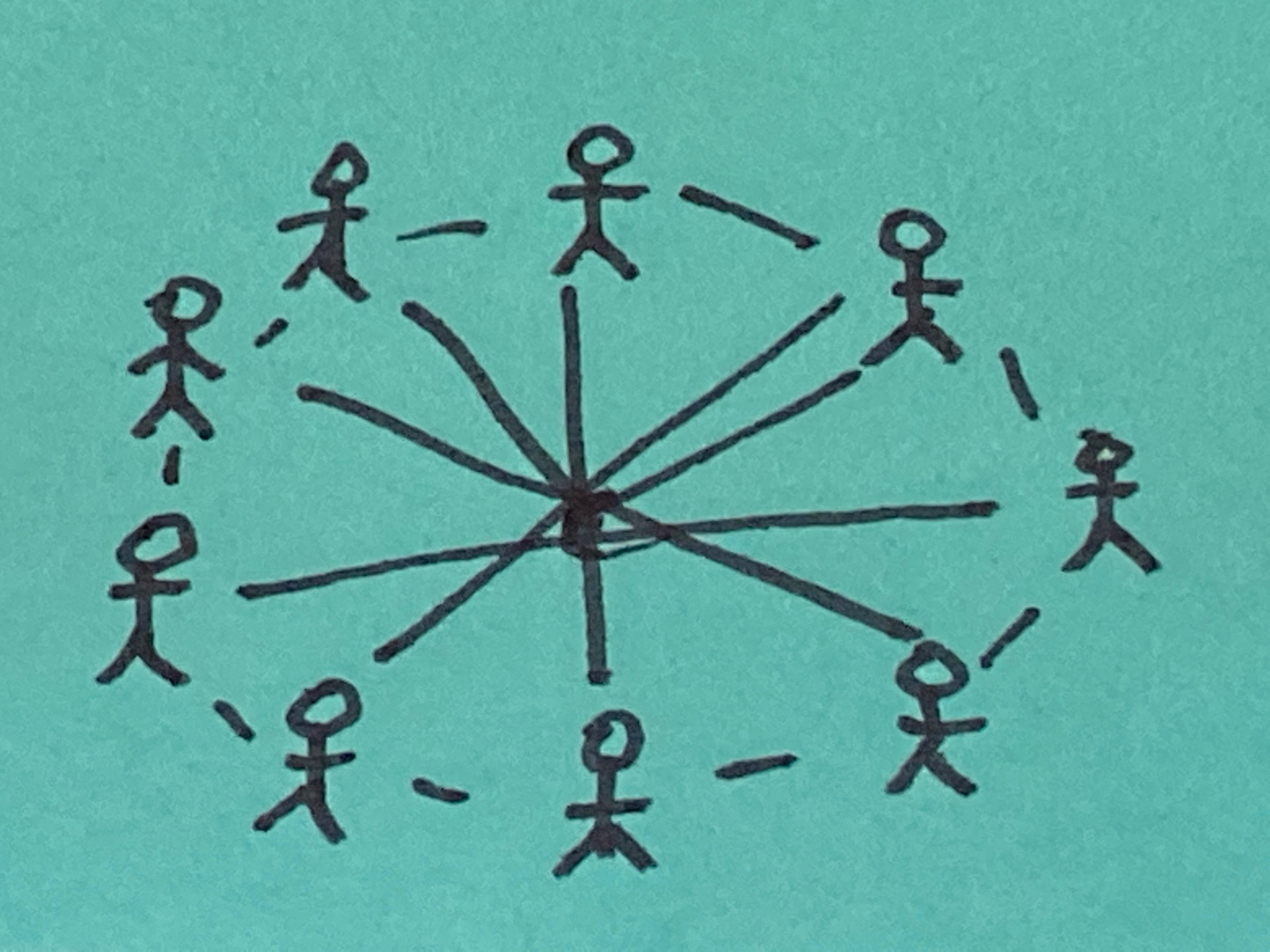Symmetric Control
Create and support organizations where power and responsibility are shared equally.

according to Global Civilization, we need to reach a new level of coherence as a society. The design of our social systems can help make that possible—World That Works—and this pattern talks about the kind of structures that allow people the freedom they need to live, create and innovate.
Hierarchical organizations, where decisions are made by a few at the top and then sent down the hierarchy to be implemented, result in members feeling powerless and replaceable; they’re not good for creating the kinds of innovation that we need.
-
If we are to successfully build a better world, we will need to do so in a way that does not need the willing participation of the existing social and political institutions.
-
The internet is making it easier and easier to build and manage decentralized organizations. As a result, its also eroding the effectiveness of traditional centralized organizations.
-
The structure of organizations is directly related to the amount of freedom given to members of that organization, whether that organization is a nation, a corporation or a community gardening club. The more centralized the power and control, the less freedom lower-power members enjoy.
-
In Nurturing Our Humanity, the authors make a distinction between domination-centered societies and partnership-centered societies. These different approaches are represented at all levels of society, including the family. This tracks closely with George Lakoff’s idea that we have two fundamentally different “frames” for family structure and power dynamics that directly correlate with our political views: “strict father” and “nurturant parent” families. My assertion is that a “strict father” family (domination-centered) would represent a top-down control structure with the father at the top, where a “nurturant parent” family (partnership-centered) would be decentralized, with at least the mother and father (and possibly the children as they get older) having more equal control.
-
Adopting a decentralized control structure means freeing members from unwelcome control or interference. As Peter Diamandis points out in his book Abundance, “decentralized [education] means learning cannot easily be controlled by autocratic governments and is considerably more immune to socioeconomic upheaval.”
-
On a personal level, decentralizing is either about accepting more control or conceding control, depending on your natural tendencies. No one is going to solve the problem single-handedly and hand down instructions to the rest of the group, so it’s about taking responsibility for your part in solving it, no more and no less. We have to make a collective effort and collaborate.
-
Internally, the idea of decentralization shows up in the balance between your different sources of knowledge: you don’t want logic having absolute power in your thinking, nor do you want emotion to be in total control. As with groups of people, power and responsibility need to be shared.
-
This idea is pretty abstract and might be a good subject for meditation or inquiry: “When does unequal control interfere with how I want to live my life?” “When do I exert unequal control over others?”
Therefore:
Participate in organizations that are decentralized such that control, power and responsibility are shared equally among members; build more of these organizations, starting with your family and extending out from there.
You can start by choosing a partnership model for your family, where you, your spouse, and kids all share responsibility. Extend it out into the community by building your Network of Friends, and go even farther to build groups of people working toward the same goal—Open Artifacts